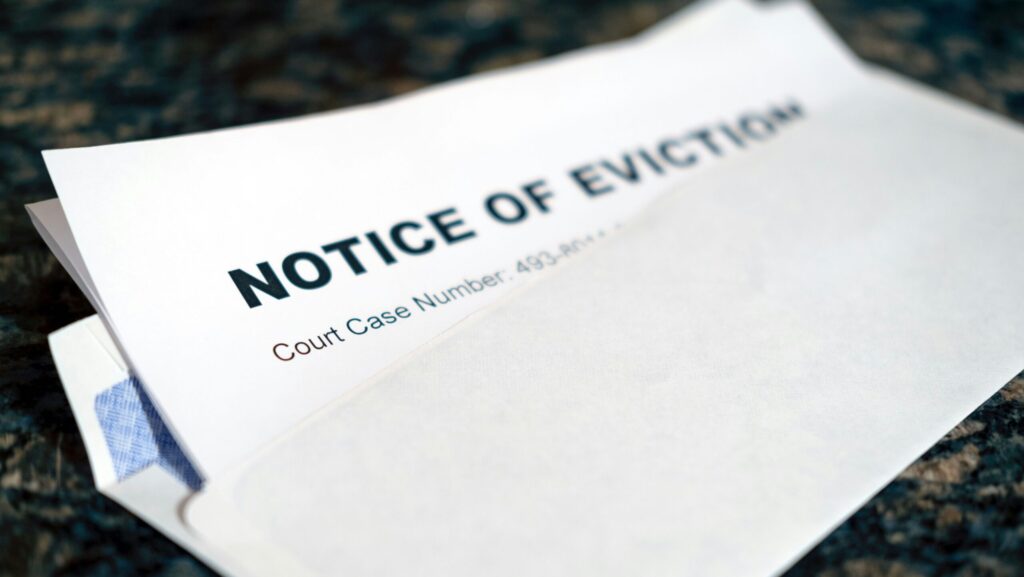Facing the prospect of eviction is undeniably one of the most stressful experiences a tenant can encounter. However, while it can be a tough situation, there are avenues for navigating it successfully. Equally important, is understanding how to prevent eviction from occurring in the first place.
Eviction is not just a legal process; it’s often a culmination of financial struggles, interpersonal conflicts, and challenges that can upend the lives of tenants and their families. Therefore, it’s essential for tenants to be aware of their rights, responsibilities, and available resources to both avoid eviction and address it effectively if faced with the threat.
Disclaimer: *This is not legal advice*
What is eviction?
Eviction is the legal process through which a landlord removes a tenant from a rental property due to non-payment of rent, lease violations, or other breaches of the lease agreement. It typically involves court proceedings and official notices to terminate the tenancy.
Firstly, understanding the reasons for eviction is crucial. In many cases, eviction arises from the inability to pay rent due to financial hardship. Unforeseen circumstances such as job loss, medical emergencies, or unexpected expenses can suddenly disrupt a tenant’s ability to meet their rental obligations.
Additionally, lease violations, such as unauthorized occupants, pet infractions, or property damage, can also lead to eviction proceedings. By recognizing these potential triggers, tenants can take proactive measures to mitigate risks and address issues before they escalate to eviction.
Communication is key in preventing eviction. Establishing open and transparent communication channels with landlords or property managers can facilitate early intervention and resolution of potential conflicts or challenges. Tenants should promptly report maintenance issues, seek approval for any changes to the lease agreement, and discuss any difficulties meeting rent payments as soon as they arise. Transparency can often lead to mutually beneficial solutions that prevent eviction and preserve the landlord-tenant relationship.
Moreover, knowing and asserting one’s rights as a tenant is very important for eviction prevention. Tenants are afforded certain legal protections under state and local landlord-tenant laws, including the right to habitable living conditions, protection against retaliatory eviction, and due process in eviction proceedings. Familiarizing oneself with these rights empowers tenants to advocate for their interests and defend against unjust eviction attempts.
By recognizing common eviction triggers, having open communication with landlords, asserting their legal rights, and accessing available resources, tenants can proactively safeguard themselves against the threat of eviction and maintain stable housing situations. Ultimately, eviction prevention requires a combination of awareness, preemptive measures, and access to support systems.
Can my landlord evict me?
Yes, but only with the court’s permission. Remember, you are renting someone’s private property. If your landlord starts an eviction against you, you will get notice of the court hearing and have a chance to go to court to defend yourself against the eviction.
It is critical that you have an understanding of what your landlord can and cannot do:
Your landlord is prohibited from removing your belongings from your apartment or changing the locks, even if you owe rent. Unless they win an eviction case against you in court – Your landlord cannot:
- lock you out of your home.
- shut off your heat or lights.
- make you leave before the court decides your case.
Only a marshal with a court order from a judge can evict you.
How do I know I am being evicted?
If your landlord wants to start the eviction process, you may receive a Notice to Quit. This type of legal document asks you to leave by a certain date because:
- your landlord did not agree that you could live there.
- you violated your lease or broke the law.
- you did not pay your rent.
- your landlord wants to end your month-to-month lease or your lease has ended (holdover) – Your landlord cannot make you leave if your lease has not ended!
I violated a rule in my lease – now what?
If your landlord believes you did something that violated your lease agreement, they are required to give you a pre termination notice. This letter must explain what you did/are doing wrong and how it violates the lease. Additionally, there are circumstances where you may be responsible to pay for damages within 15 days of received notice.
If you get a notice like this, always try talking to your landlord about the problem. This way you can ensure there was not a miscommunication or misinterpretation. If you fixed the problem within 15 days, make sure to get as much documented proof as you can.
A classic example is when the landlord believes you allowed someone to live with you who was not allowed to live there – get proof that the person lived somewhere else.
If the problem is not solved within 15 days, your landlord may send you a Notice to Quit. If you find yourself in a situation where you need local legal help, CTLawHelp.org is a great resource.
Empower yourself
In conclusion, understanding eviction is crucial for tenants to protect their rights! By recognizing common eviction triggers, building a communication line with landlords, asserting legal rights, and accessing available resources, tenants can safeguard themselves against eviction threats.
Remember, eviction prevention requires proactive measures and awareness of tenant rights – ultimately empowering individuals to navigate challenging situations with confidence and resilience. With knowledge and support, tenants can mitigate risks and preserve their housing stability.

